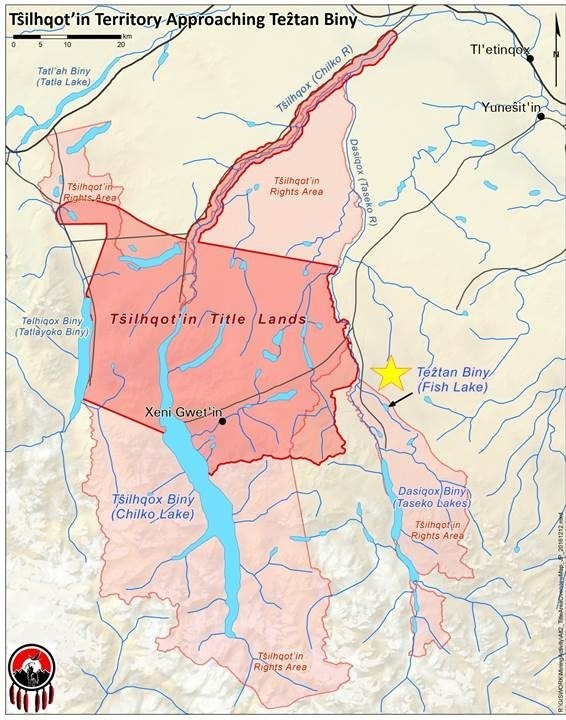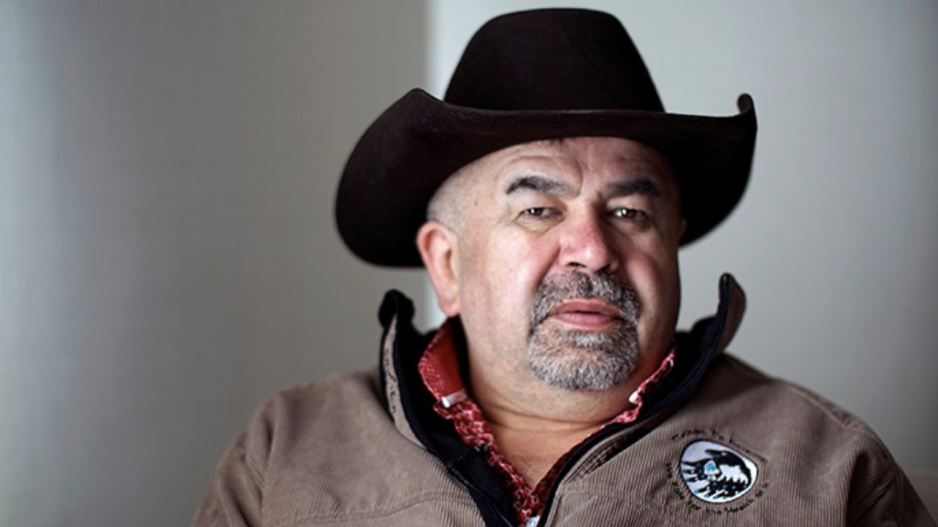Nine years after the Supreme Court of Canada confirmed Tsilhqot’in rights and title on specific lands in and around Chilko Lake, the Tsilhqot’in First Nation have published a new policy for oil and gas and mineral extraction.
The Tsilhqot’in have fiercely opposed mining in their territory – notably the Taseko Mines (TSX:TKO) Prosperity copper mine. The federal government twice rejected the mine proposal, based in no small part on the concerns the Tsilhqot’in raised over the potential impacts on Fish Lake, which the Tsilhqot’in call Teztan Biny.
The proposed mine lies just outside the area that the Supreme Court recognized at Tsilhqot’in title lands, but within Tsilhqot’in rights area.
In 2010, the Stephen Harper government denied the Prosperity mine an environmental certificate. In 2014, the Harper government again denied a permit for a revised mine plan, called New Prosperity. That was the same year that the Supreme Court of Canada also made a landmark ruling that acknowledged Tsilhqot’in title to a core piece of territory in the Chilko Lake area, as well as Tsilhqot’in rights extending to a wider area.
To provide greater clarity on what is and isn’t allowed in terms of exploration and mining, the Tsilhqot’in have published a for mining and oil and gas.

“The Tsilhqot’in Nation will consider culturally and ecologically conscious development of natural resources in the Tsilhqot’in traditional territory, provided the ecological and cultural values of the Tsilhqot’in are respected and there are significant long term social and economic benefits for Tsilhqot’in communities,” the new policy states.
The policy states the Tsilhqot’in will “consider partnership and ownership opportunities with mining and exploration companies.” It also states the Tsilhqot’in will increase capacity training to ensure Tsilhqot’in people benefit from jobs, training and contracts.
The policy sets certain conditions for exploration and mining, however, including:
- ensuring nen (ancestral land) is “returned to a state acceptable to the Tsilhqot’in”;
- exploration agreements and impacts benefit agreements will be required “prior to approval of any exploration or mining project”; and
- require resource revenue for the Tsilhqot’in from mining
“The Ts虃ilhqot’in mining policy outlines what must happen for mining and exploration to be considered by the Nation,” Chief Joe Alphonse, tribal chairman of the Ts虃ilhqot’in National Government, said in a press release.
“Our work over recent years to develop a policy is reinforced by the recent victory by Gitxaa艂a Nation and Ehattesaht First Nation to overturn B.C’s mineral staking system that was based on a complete denial of Indigenous rights 小蓝视频”
He referred to a by the 小蓝视频 Supreme Court that directs the provincial government to change the way minerals claims are registered so that First Nations are notified and consulted.
“We know the importance of minerals to the global economy but nothing is more important to life and the environment that sustains it," Alphonse said. "The pandemic has shown us that we can adapt quickly with the right leadership.
"As we adapt to reduce the impacts of the climate crisis there will be increased pressure to access minerals. But let it be clear, exploration and extraction in our territory will not happen without our participation and agreement.”
“While we haven’t engaged with the Tsilhqot'in or have any firsthand knowledge of their policy goals, the TNG mining policy is not unusual," said Michael Goehring, CEO of the Mining Association of 小蓝视频.
"It appears to be largely consistent with the expectations and aspirations expressed by other indigenous nations in 小蓝视频 who want to protect the land and resources while also advancing responsible mineral development that maximizes benefits to Tsilhqot’in communities through their active engagement and participation in consent-based decision making processes.”
As for Taseko's New Prosperity project, despite being rejected mutliple times by the federal government and the Tsilhqot'in, the company and Tsilhqot'in are still talking about it.
In 2019, Taseko and the Tsilhqot'in both agreed to a standstill on their respective legal and regulatory challenges. According to Taseko, the standstill agreement is extended through the end of this year.
“The dialogue process has made tangible progress in the past 12 months but is not complete," the company said in a statement to BIV News.
"In agreeing to extend the standstill through 2023, the Tsilhqot’in Nation and Taseko acknowledge the constructive nature of discussions to date, and the future opportunity to conclude a long-term and mutually acceptable resolution of the conflict that also makes an important contribution to the goals of reconciliation in Canada.”




